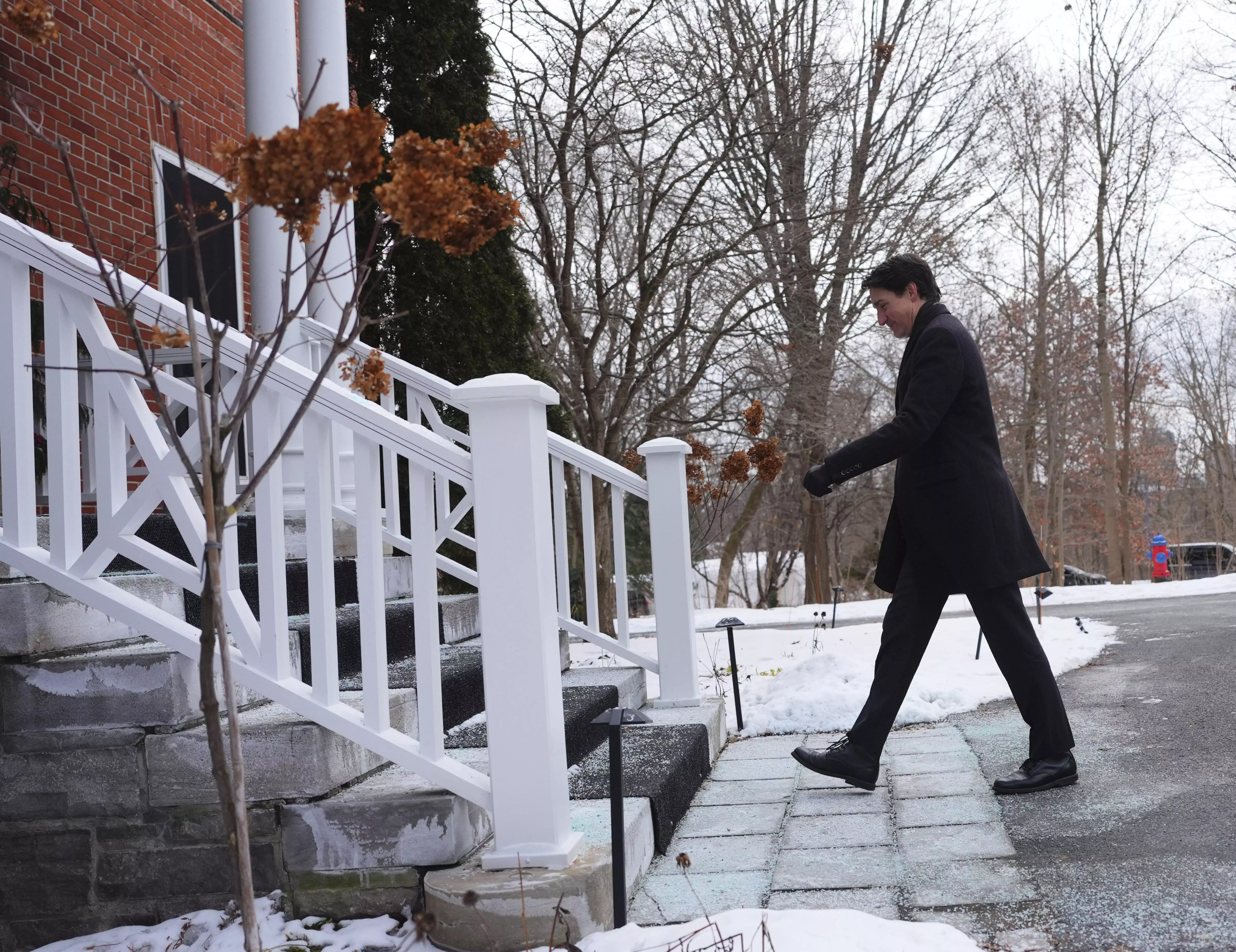AA Edit | Trudeau quits under a cloud; but crisis with India not over

Castigated by Donald Trump and trolled by Elon Musk, the Canadian Prime Minister, Justin Trudeau, would have been the most vulnerable leader of the North American country, similar to the United States on so many counts that he may have had to throw in the towel in the face of threats of tariffs and withdrawal of subsidies.
The need to wait for the Trump accession was obviated when the once darling of Canadian politics lost the confidence of the Liberal Party. He should be heading into political wilderness soon enough despite his leech-like qualities in clinging to a chair his father Pierre Trudeau had made his own in his life in politics.
Rising housing prices, galloping inflation and high unemployment were the basic causes for the considerable anger the Canadians felt as much as the leader’s liberal view of immigration that allowed three million migrants to come in just three years thus burdening the creaking public health, welfare systems and services.
Canada’s contretemps with India, driven by Mr Trudeau, was only a subplot in a larger Canadian drama of disenchantment with the Liberal Party and its once pinup boy leader who had gone from hero to villain in the last couple of years of his nine years at the helm.
A bit of schadenfreude in India at Mr Trudeau’s impending exit is understandable though, given the constitutional provisions governing no-confidence motions and ordering fresh elections, he may still be around for a while. But his exit would not mean the problem in India-Canada ties will be resolved at once.
It is, however, unlikely that anyone else would take the confrontationist course that Trudeau took to save his job that had become dependent on the support of the New Democratic Party, dominated by Punjabi immigrants, which had propped up his coalition rule until they too saw through his limpet-like survivalism in the face of sagging popularity.
A history of a couple of hundred years of a good relationship with India was to be spoiled by the extraordinary leeway that Canada, under Trudeau, had granted elements of a separatist movement that had been eliminated in Punjab but found a revival in Canada.
In going on to the floor of parliament to accuse a friendly government of plotting to kill a Sikh separatist on Canadian soil, Mr Trudeau had crossed a line. Whatever be the truth of the murder of one Khalistan activist, based on what seemed more like a conspiracy theory than forensic evidence, it was clear Mr Trudeau had thrown everything into it as if it was the source of all his problems in governing his country.
Not that the Indian side did not berate him for that; even so, it was an event too small to be pursued to the scale Mr Trudeau did. And India had responded with undiplomatic forthrightness to the PM instead of protesting its innocence, if indeed it had nothing to do whatsoever with the killing of a personality alien to India’s interests.
Finally, it was a gridlocked parliament and infighting in his own party whose member and deputy PM and finance minister Christia Freeland resigned while accusing him of indulging in political gimmickry that had forced Mr Trudeau’s hand. A double-digit lead for the Conservative Party in popularity polls was a signpost to the future.
What happens after January 20, with Trump in the White House, is anybody’s guess but Canada, under Trudeau, had no chance in a game of tariffs on US imports from a sister country though the departing PM did try mending fences with a visit to Mar-A-Lago last October. Let it be said that Mr Trudeau had outlived his usefulness as an iconic politician and not even his Khalistan-loving friends may regret his leaving thus.
